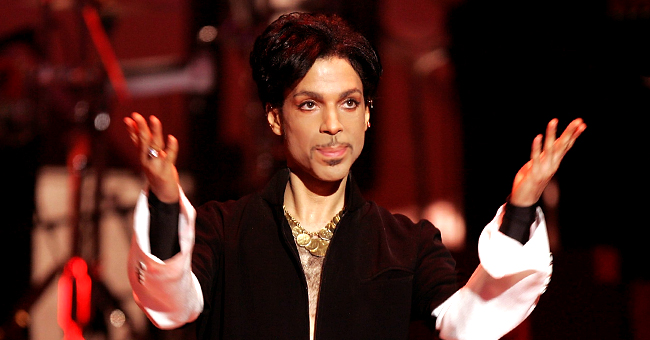
'Purple Rain' Director Talks Meeting Prince for 1st Time and Working Together
Last weekend marked the 35th anniversary of “Purple Rain,” the almost-autobiographical film that drove Prince to worldwide fame.
To celebrate, the film’s director recalled how it was working with one of the most iconic musical figures of the ‘80s.
After the mild success of Prince’s “1999” album, the star embarked on a national tour that took him around more than 50 cities.
During that time, he came up with the concept for his next album, which he pitched to his label as the soundtrack for a movie where he would be the star.
Prince, who was under Warner Brothers at the time, gave the label an ultimatum: either they found him a movie deal, or he would find another label that would.
It was a hard choice for the executives, considering that at the time Prince’s popularity was still on average numbers. But they agreed to invest in the film.
FINDING THE RIGHT SCREENPLAY
The original screenplay, titled “Dreams,” was written by William Blinn. Prince’s then manager, Bob Cavallo, was searching for a director that would bring the project to life when he met Albert Magnoli, a 30-year-old USC college graduate that only had one student film under his belt.
"How is it that you just told me my life story in the last 10 minutes?" - Prince.
Unconvinced by Blinn’s script, Magnoli gave Cavallo a few pointers to make the story better, as he recalled in a recent interview with Variety:
“I said, ‘What you need to do is hire a writer-director to go to Minneapolis and sit with everybody and really understand what it is they’re doing, and find if there’s any dramatic narrative that then can become a motion picture. You’d have to start from the inside-out, instead of from the outside-in.”
At Cavallo’s insistence, Magnoli pitched him a new story that he crafted in the spurge of the moment.
The manager was impressed, and he flew Magnoli to Minnesota to meet with Prince,
MEETING THE STAR
However, at his arrival, Prince’s co-manager Steven Fargnoli told Magnoli that they would be working on the original screenplay, the one that William Blinn wrote.
“But when the elevator doors opened, and Prince emerged, I was struck by how vulnerable he was and how uncertain he [seemed],” Magnoli recalled. And continued:
“So these three guys are staring at me, and Prince says, ‘Tell me why you like my screenplay’ — which is a tacit way of saying that he endorsed the [original] screenplay. And I said, ‘I’m not here to talk about that story. I’m here to talk about the story that I told Bob Cavallo two days ago.”
After hearing the new story, which described the life of a talented but struggling musician who grew up in a home with domestic violence and had issues with his bandmates, Prince replied:
“How is it that you just told me my life story in the last 10 minutes?’”
A JOINT EFFORT
From there on, Magnoli and Prince worked together to make sure the music matched the story and served as a compliment through the plotline.
Prince had already written over 100 songs that he handed to Magnoli, including “Darling Nikki” and “Let’s Go Crazy.”
Prince was surprised by Magnoli’s request of filming in Minnesota, but despite the poor weather conditions they had to face that autumn, Magnoli recalls saying: “This is where you’re from. We’re making the movie here.”
Magnoli first heard “Purple Rain” in a concert at First Avenue, the Minneapolis night club that became a central piece of the film. He described that night and how the movie title was born:
“One of the songs he played that night, as soon as the concert was over, I ran downstairs and said, ‘What’s that song? It sounds like a Bob Dylan anthem.’ He said, ‘It’s called ‘Purple Rain.’ I said, ‘That’s the song I’m missing!’ He said, ‘That’s great — can we call the movie that?’ And that’s how fast the title came into being.”
HARD WORK PAYS OFF
Prince and his band, The Revolution, were fully committed to the project. They had acting coaches and were fully responsive to any criticism that came from Magnoli or his team. Everyone wanted the movie to be a success.
The buzz around the movie started one month before its release, with “Purple Rain” the album selling over 2.5 million copies.
On its opening weekend, the movie grossed $7.7 million and replaced “Ghostbusters” as the top film in the US. It eventually pulled in $68 million.
“Purple Rain” gave Prince the final push he needed to become one of the most representative figures of music in the ‘80s. He gained worldwide fame after that, and also an Academy Award for Best Original Song Score.
Magnoli believes that the success of “Purple Rain” was born from telling an authentic story.
“I think the most important part of all this is to make something that rings true,” he said. “And that has proven to be the right path as time has gone on, because the film constantly gets revisited and there’s a fan base that protects and cherishes it. And that starts at the very beginning with authenticity.”
